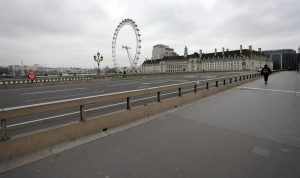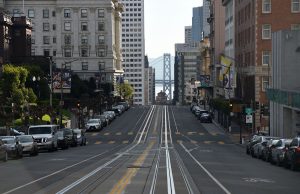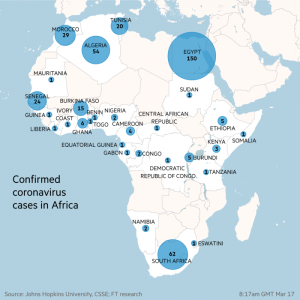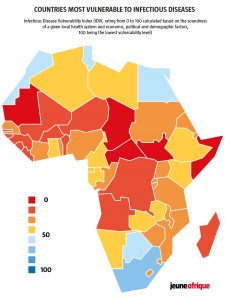Bringing Coronavirus under control is as medical as it is global power politics. That makes it interesting that it is Donald Trump who has been heavily criticised for his handling of the pandemic who still made the announcement about finding in Chloroquine a vaccine for Coronavirus.
If it was China or Russia that made the announcement, that would have reinforced the position of the Declinists that the US is on terminal exit from global primacy. The debate about American decline has been on among political economists since the late 1970s and a scholar such as the late Susan Strange could be said to have made her name with her own intervention in that debate.

Dr Anthony Fauci and the question of how soon the world might have the authoritative expert pronouncement on the issue from the American angle
But it would appear it is now the battle against the virus is about to begin. Those who listened closely to Dr. Anthony Fauci, the Head of the US Institute of Infectious Diseases on CNN expatiating on President Trump’s announcement credit him with only anecdotal evidence and laboratory experiments on efficacy of Chloroquine. The implication is that no scientifically tested and approved drug exists yet against the virus. In other words, Chloroquine is merely what the US wants to try amidst reservations by the experts.
If that is so, it means the politics of global primacy more than containment of the virus is what might have been more at stake in Trump’s announcement Wednesday. And only time will tell!
A virus disrupting the whole world is no longer a medical but a big political issue although it is still interesting how health could so quickly take the first position among new security challenges, far, far ahead of terrorism and even energy. But it was only in 1991 that Prof Stephen Walt, for instance, wrote his famous essay rejecting widening and deepening the concept of security to include some of such items, generating so much intellectual storm in the discipline of International Security.

A March 18th, 2020 AP picture by Kirsty Wigglesworth in The Atlantic showing an empty Westminster Bridge in London, what would hitherto almost be impossible, being a happening transit point

A March 17th, 2020 picture of emptiness on California Street in San Francisco, a sharp contrast to its usual self after residents of its Bay Area, including Silicon Valley, were ordered to stay home, according to The Atlantic.
A few decades thereafter, a virus shuts down industrial civilisation, while the non-industrial world speculates its fate should the drama last longer except if its all geopolitics or a blowback. Many would vote The Economist for best capturing the state of the world: Scores of countries, including many in Africa and Latin America, have barred travellers from places where the virus is rife. Times Square is deserted, the City of London is dark and in France, Italy and Spain cafés, bars and restaurants have bolted their doors. Everywhere empty stadiums echo to absent crowds”
Perhaps, its two suggestions on how to contain the virus would find purchase with the powers that are. Whether that would save the day for countries in Africa where facilities are either not there, dysfunctional or inadequate is the question now.

 There are fears in informed circles that Nigeria, for instance, will not successfully control Coronavirus as it did with Ebola in 2014 because as one interested observer put it, a man who has not travelled is among those infected in Nigeria. That points at a dangerous dimension of community spread of the virus which is very difficult to control in countries with over-crowded communities and poor health systems”. His conclusion is based on field experience with Ebola in Guinea, Sierra Leone and Liberia in 2014-15. There is, rightly or wrongly, little confidence in the preparedness of the health care system in Nigeria for a worst-case scenario, should it come to that.
There are fears in informed circles that Nigeria, for instance, will not successfully control Coronavirus as it did with Ebola in 2014 because as one interested observer put it, a man who has not travelled is among those infected in Nigeria. That points at a dangerous dimension of community spread of the virus which is very difficult to control in countries with over-crowded communities and poor health systems”. His conclusion is based on field experience with Ebola in Guinea, Sierra Leone and Liberia in 2014-15. There is, rightly or wrongly, little confidence in the preparedness of the health care system in Nigeria for a worst-case scenario, should it come to that.
The situation is not better in North Africa where only Libya is said to be free of the virus, not Egypt, the big player there which has a figure of over 200 cases of infection. Down to Southern Africa, the situation is not better. Although Cyril Ramaphosa in South Africa has announced what looks systematic counter-measures, it already has over 150 infections.
Who knows? Those passing a message to the effect that Pope Francis has called on everyone, irrespective of religion or location towards the whole planet united in prayer for the healing of the world might have a point if it is, indeed, true that the message is actually from the Pope. Nowadays, there is no knowing who is sending which message!




























